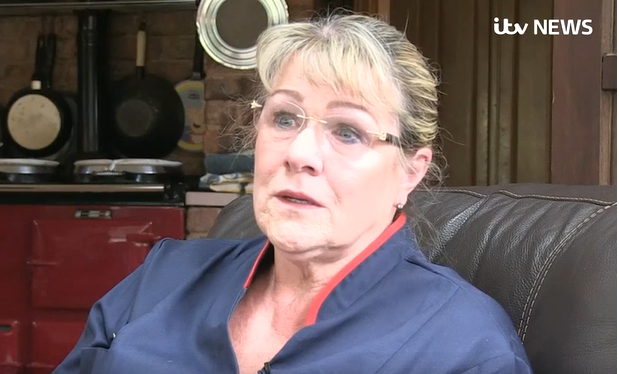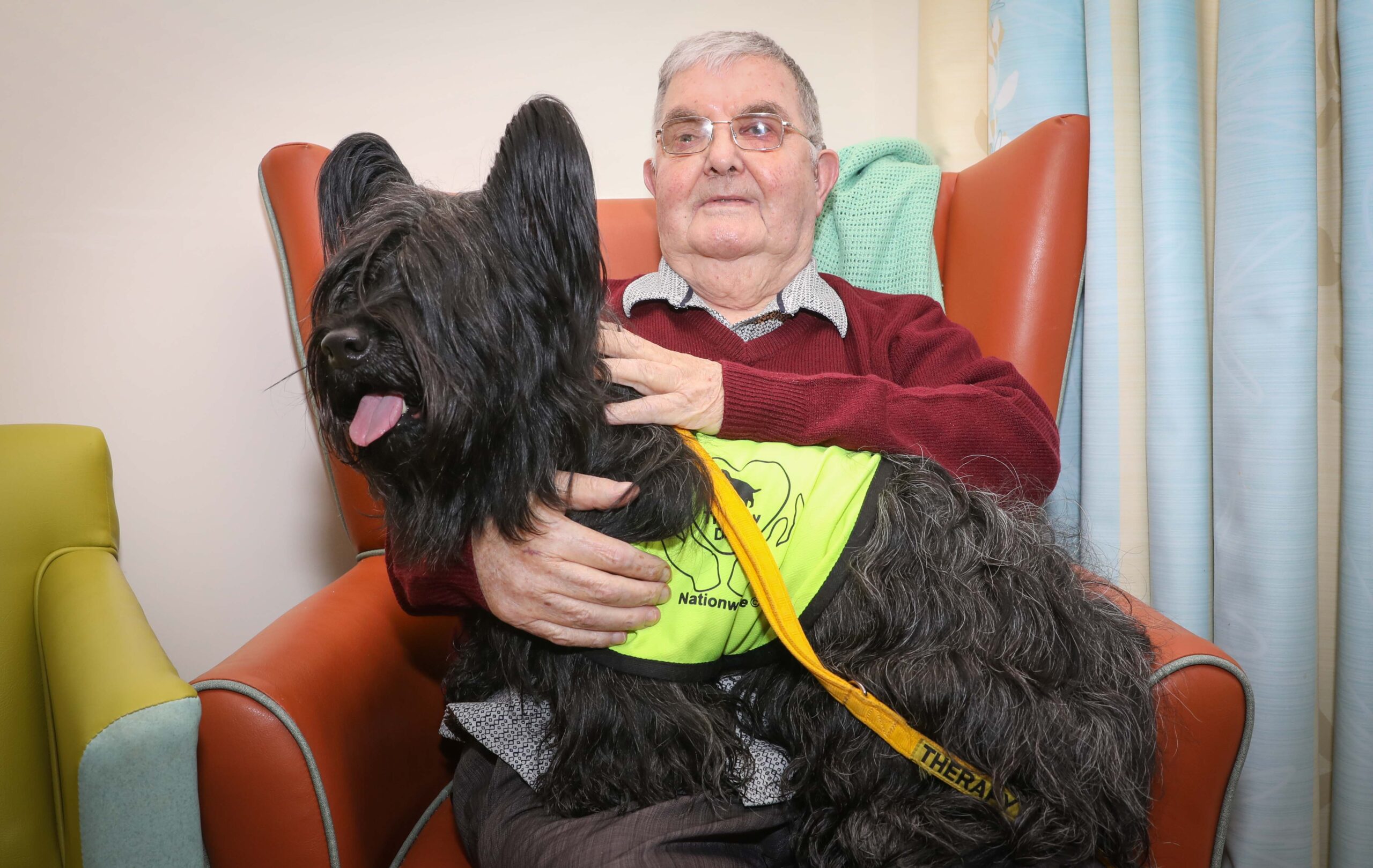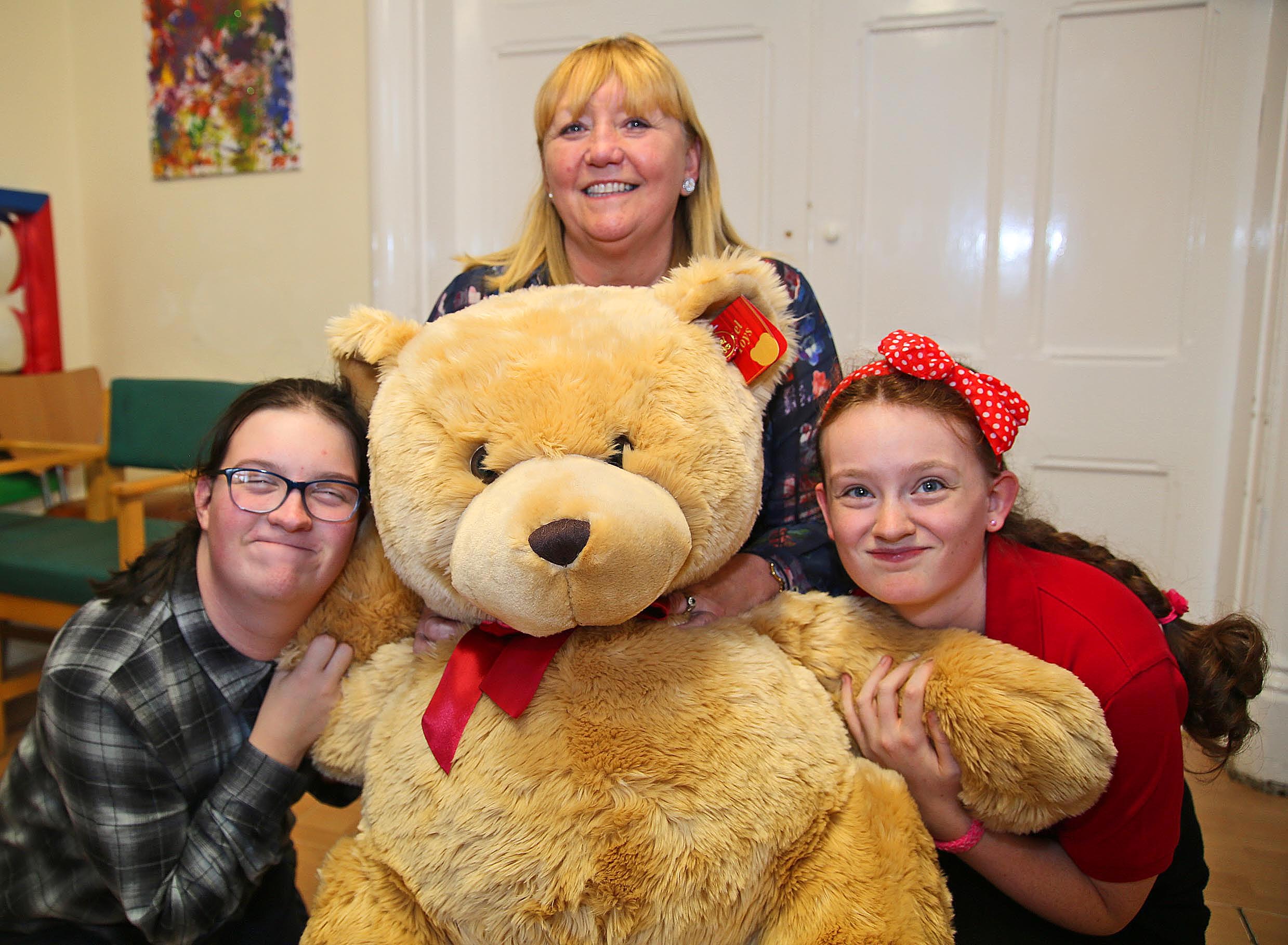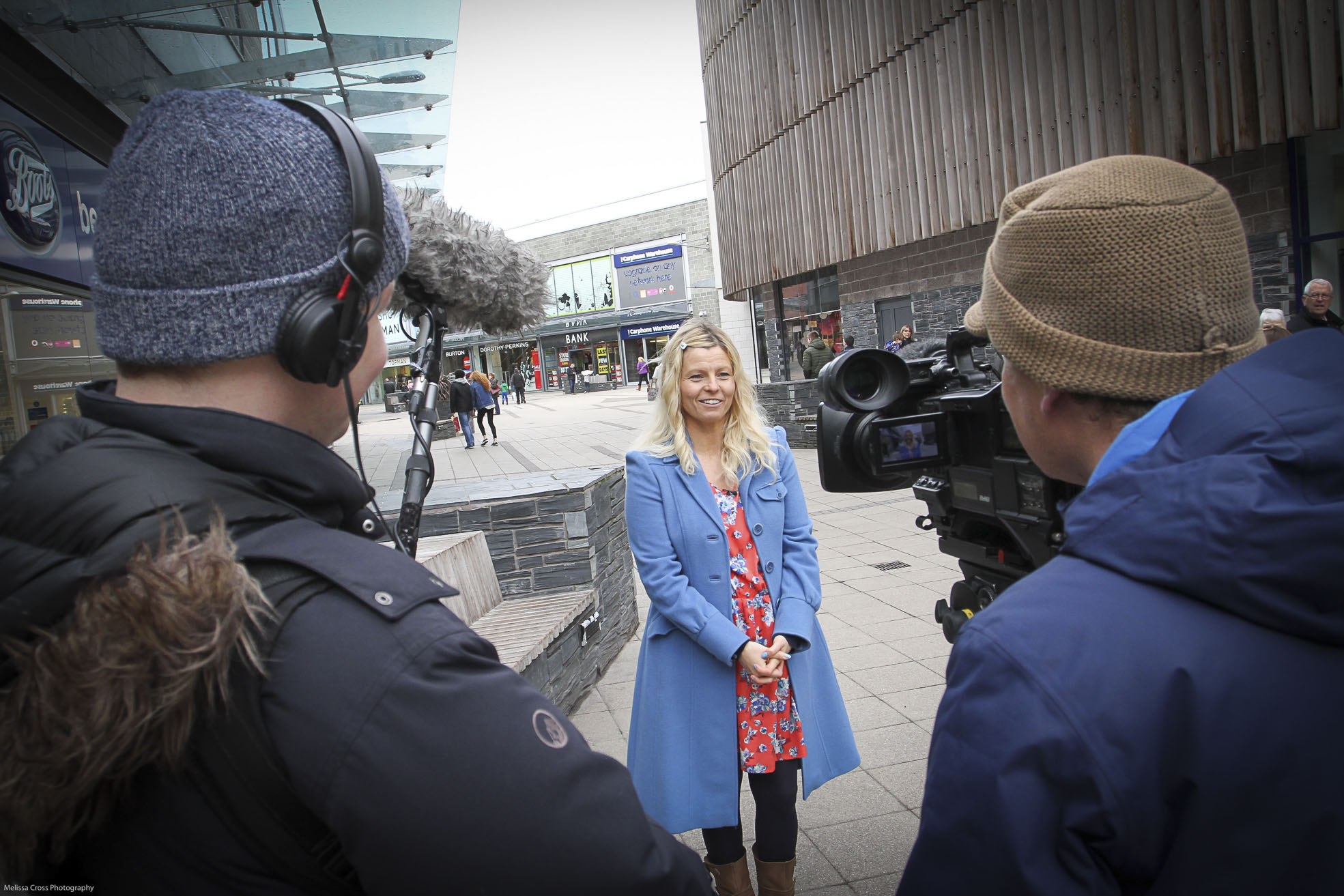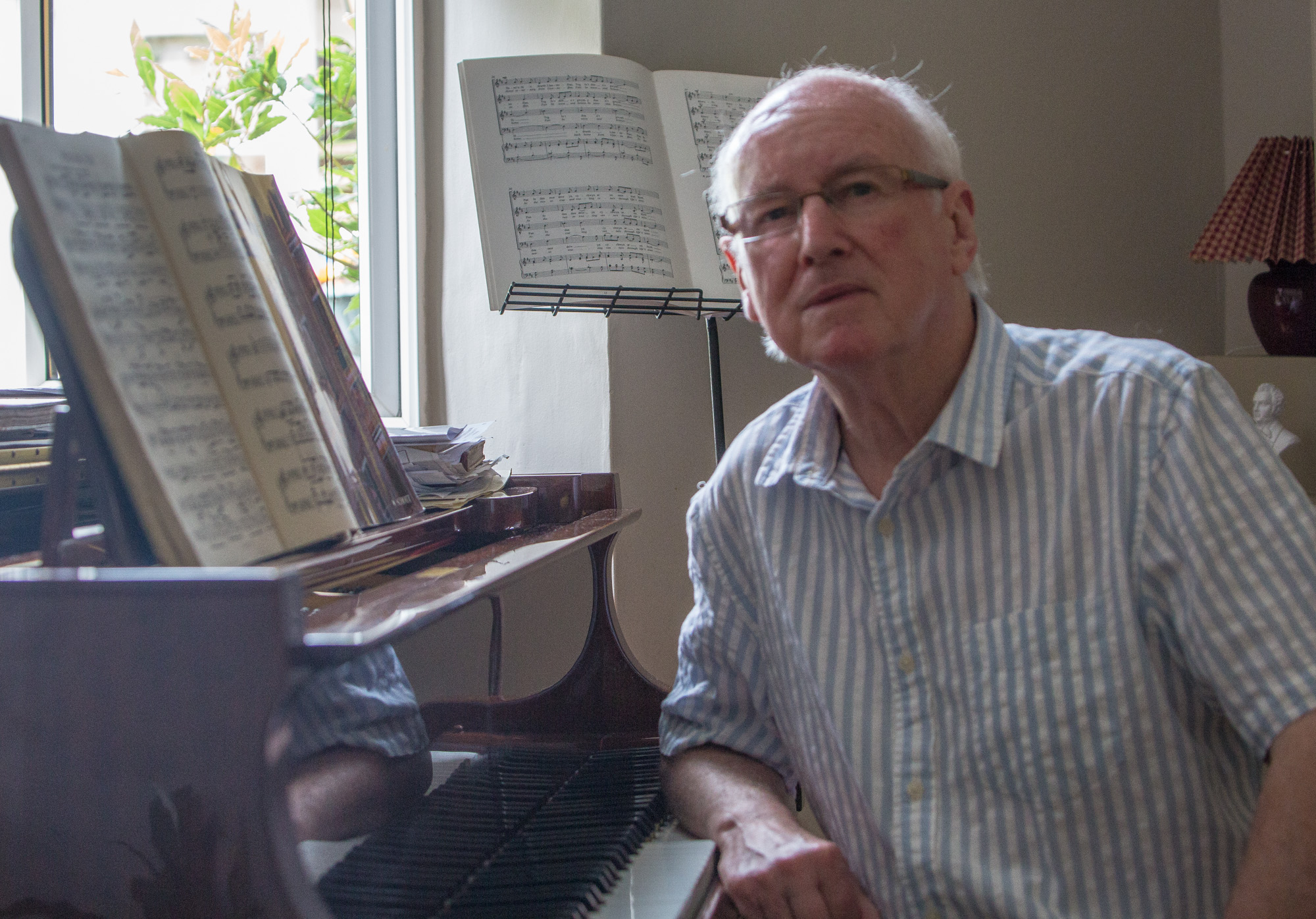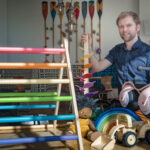The heartbroken owner of a care home whose husband killed himself because of the unbearable pressures of Covid has hit out at the lack of support they received.
Helen Hough, who runs Gwastad Hall Care Home, in Cefn-y-Bedd, near Wrexham, said she had chosen to speak out because otherwise the death of her husband, Vernon, would have been “in vain”.
In a powerful and emotional interview, she told the Tonight programme on ITV it was traumatic for her and Mr Hough to watch their residents die without being able to give them Oxygen to relieve their symptoms.
Mrs Hough revealed none of the residents were tested for coronavirus, GPs refused to visit the home and it was impossible to get hold of PPE.
As a result, they had to resort to making their own isolation gowns out duvets and wear home-made visors.
She told the inquest last November that he had lost weight due to worrying about Covid-19.
Mr Hough, 61, was found inside his 4×4 vehicle which was parked in the staff car park of the Police Divisional HQ on Davy Way in Llay, at 9.45pm on May 21 last year.
A post-mortem examination found he had died of a single self-inflicted gunshot wound from a shotgun. The firearm, which Mr Hough owned legally, was discovered nearby.
Coroner David Pojur, who recorded a verdict of suicide, said the pressure of working through the pandemic had “overwhelmed” Mr Hough and it had “affected his mental health”.
Before the pandemic struck, the 40-bed Gwastad Hall had always been a happy care home and Mr Hough had never suffered any problems with his mental health.
But after seeing so many of the residents pass away, he took his own life without any warning.
Mrs Hough said: “I should have seen what it was doing to him but I didn’t realise he would ever do that.
“It was very traumatic see our patients die. Of course, now we’re coming to the stage of vaccines and everybody’s going to forget this.
“March, April, May – I can’t describe what it was like. We were dealing with homemade isolation gowns made out of duvets, homemade visors. None of the patients that died during that time, April and May, were tested.
“What they decided to do was remotely visit patients but the Wi-Fi system here is rubbish so if we went down to a patient’s room with a tablet you lost the Wi-Fi signal.
“None of these patients was seen by a doctor before, during or after death. They were verified by the nurses who worked here.
“To watch these patients, they were gasping for oxygen and I couldn’t give them any relief. As a nurse I find that incredibly hard and for Vernon to watch that was horrendous because we could not give them any relief.
“I feel his death’s in vain if I don’t speak out. The only reason this happened was because of the effects of Covid.”
The Welsh Government told the programme: “This is a truly tragic case. Large scale tests in care homes took place across Wales in late Spring following a change in scientific advice. PPE is now provided free of charge.”
Mario Kreft MBE, the chair of Care Forum Wales, which represents nearly 500 independent providers, said: “My heart goes out to Helen, the family, the residents and staff who have suffered such heartbreaking loss.
“Vernon tragic case illustrates the enormous pressure care home owners and their staff have been under as a result of the pandemic.
“It’s been such a terribly dark time for people working in the sector and the sense of responsibility felt by Vernon toward the residents of Gwastad Hall clearly became too much for him to bear.
“Helen was immensely brave in speaking out to reveal the problems they and so many other care homes faced.
“As well as looking after our beloved residents, we need to remember that we also have a duty of care to owners, managers and staff who have risen heroically to deal with the unprecedented challenges caused by the pandemic.
“Sadly, it is clear we are not out of the woods yet. Far from it. Infection rates are still sky high and the new, more contagious mutant strain of Covid-19 is a massive worry.
“The new variant is a greater threat to people in care homes because it is so easily transmissible and spreads so quickly.
“It is much more dangerous to our residents because they are by definition uniquely at risk because of their age and fragile health.
“The availability of vaccines is fantastic news but we are involved in a desperate race against time to get people inoculated. It is literally a matter of life and death.
“Tragically, for far too many it is too late.”

